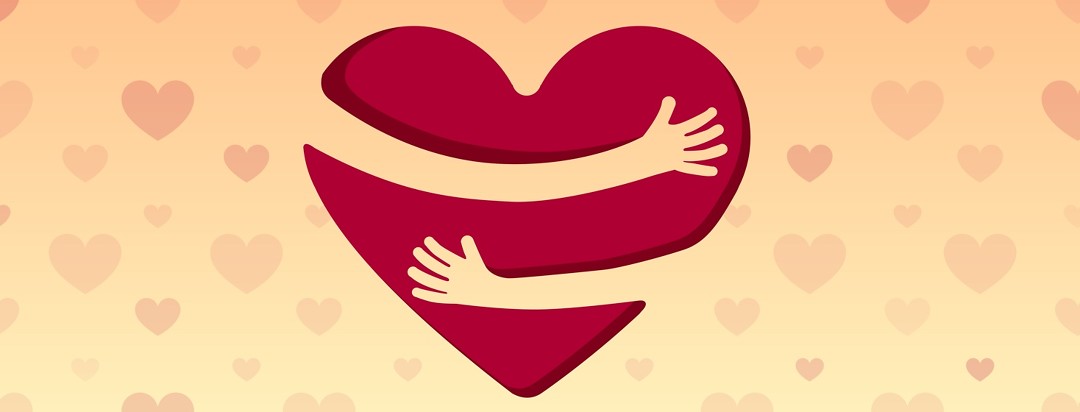Heart Failure: Learning the Signs and Symptoms
It has been established that anywhere from 20-70% of people diagnosed with COPD will eventually develop heart failure.1 It doesn't always happen, but when it does you most certainly want to be prepared so you know what to do and when to seek help. Here are the signs and symptoms of heart failure to look out for.
To understand how COPD causes heart failure, please refer to my post "Links Between COPD and Heart Failure."
Signs and symptoms of right heart failure
Your right heart receives unoxygenated blood from your body and pumps it through your lungs. After years of pumping blood through diseased lungs, your right heart can become enlarged (hypertrophied) and turn into a weak pump. When this happens because of chronic lung disease it's referred to as cor pulmonale. It is responsible for 10-30% of hospital admissions for heart failure.5
Right heart failure causes blood to become congested in blood vessels. It may cause weight gain. The most common sign is ankle and foot edema, and this is often the only sign. This may be worse after standing all day, and improved at night after lying down all night. Another sign is a bulging of the jugular veins on the sides of your neck. It can also cause stomach discomfort, nausea, weakness, fatigue, palpitations, and shortness of breath. 1-2, 5-7
Right heart failure treatment
The most common treatment is to lose weight, limit your intake of fluid, and eat a healthy diet that is low in salt. Diuretics may be indicated to pull some of the fluid from your body. They basically make you pee it out. Other medicines can increase the strength of your heart to make it a stronger pump. Other medicines may reduce blood pressure to reduce the work your heart has to do. Of course it's always a good idea to adhere to your COPD treatment program as well.
When to seek help
It's time to seek help when you experience weight gain, or worsening edema in your legs, feet, or ankles. If you experience increased shortness of breath not responsive to your regular COPD medicines, and as per your COPD plan of action you worked out with your doctor, you should seek medical attention immediately. Keep in mind that shortness of breath may mimic shortness of breath due to a COPD exacerbation. It also will not respond to COPD medicines.
Chronic left heart failure signs and symptoms
Your left heart receives freshly oxygenated blood from your lungs and pumps it to the rest of your body. For a long time there may be no symptoms. However, as it becomes a weaker pump, it has trouble keeping up with your body's metabolic needs. For instance, when you exert yourself, your heart may have a tough time keeping up with your body's increased metabolic needs, making you feel winded, or like you can't catch your breath (dyspnea). The treatment for this is rest and maybe supplemental oxygen. Medicine may also prove helpful (see below). 2, 8
Acute episodes of left heart failure
You may experience weight gain. Blood may get backed up into your lungs, causing fluid in your lungs (pulmonary edema). This may cause you to feel like you have to sit up to breathe (orthopnea). You may have a cough, which may be productive of pink, frothy secretions (a very severe sign -- call 911 now!). Your oxygen levels may be low. Your breathing and heart rate may increase. Blood will be shunted to your vital organs, so you may feel cold and clammy to the touch, and the skin around your lips and fingertips may appear blue (cyanosis). You may feel fatigue, weakness, and anxiety. These are all severe signs and symptoms, meaning that you need to seek immediate medical attention. Call 911.2, 5
Can heart failure be treated?
As noted above, symptoms of right and left heart failure can "mimic or accompany" COPD symptoms,1 but do not respond to COPD medicines. So, it's important to keep in touch with your doctor, and seek help when you need to. That said, right and left heart failure are usually treated the same. Your doctor can prescribe medicine to remove fluid from your body and to lower your blood pressure so your heart doesn't have to work so hard. Other medicines can make your heart a stronger pump. A diet low in sodium may also help reduce fluid retention. Supplemental oxygen can help make sure your oxygen levels stay at acceptable levels. Oxygen may be especially beneficial at night when you're sleeping and when you are exerting yourself.5 CPAP and BiPAP have also been shown to help "improve outcomes." 1, 2
What to look out for
Ideally, you'll want to seek help long before symptoms get severe. Your body will show early signs of acute heart failure, such as worsening edema of your lower legs, ankles or feet and weight gain. Seek help if you experience worsening fatigue, irregular heart beat, rapid heart beat, chest pain, dizziness, or confusion. You should also seek help when you experience worsening shortness of breath, or any of the signs and symptoms noted above for acute left heart failure.
Not everyone with COPD will develop heart failure. There is no cure, but it can be treated. It's important to know that people are living longer than ever before thanks to modern wisdom and medicine. So, if you experience any of the above symptoms, tell your doctor, and call 911 if you need to. The sooner you seek help the easier it is to fix you and get you back to your home.
Community Poll
Do you have an exercise routine?

Join the conversation